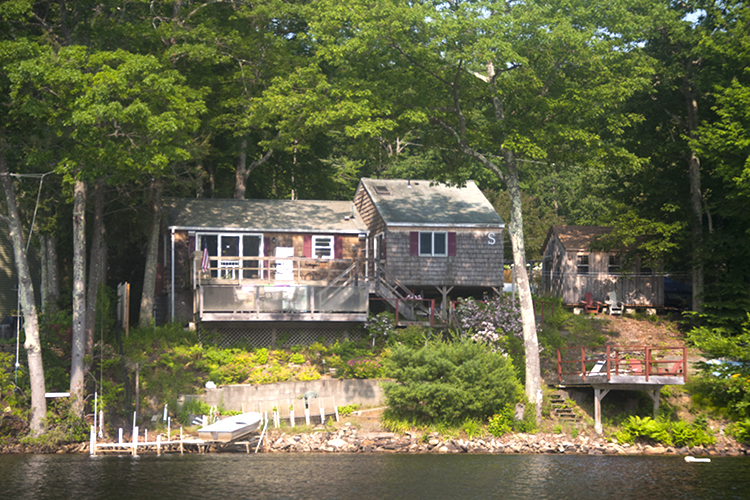
Sears House, Hamilton Reservoir, Holland, Massachusetts, US
Dear EarthTalk: How will climate change affect real estate values?
It’s not surprising that questions like these are on readers’ minds today, given the relentless hurricanes in the Southeast, the devastating wildfires in California and other climate-related “Acts of God” bedeviling Americans recently. No doubt, climate change is already having an effect on real estate values.
Of course, the 40 percent or so of Americans who live in coastal areas are at most risk of financial loss, given rising sea levels and the increase in intense storms and attendant flooding. A recent analysis by Attom Data Solutions found that home sales in flood-prone areas grew 25 percent less quickly than in counties not prone to flooding over the last five years.
“If sea levels rise as much as climate scientists predict by the year 2100, almost 300 U.S. cities would lose at least half their homes, and 36 U.S. cities would be completely lost,” says Krishna Rao, Director of Economic Product & Research at Zillow. Across the country, some 1.9 million homes—worth some $882 billion in the aggregate—are at risk of literally being “underwater” as sea levels rise in coming decades.
Those states with lots of people living along their coastlines would be hardest hit. “More than one in eight properties in Florida are in an area expected to be underwater if sea levels rise by six feet, representing more than $400 billion dollars in current housing value,” reports Rao.
But living away from the coast doesn’t guarantee your real estate values won’t be affected by climate change, given the increase in extremely warm days across the country and the extension of the wildfire season across much of the West. Verisk, an insurance industry data analytics provider, reports that more than two million homes within California alone are already located in high risk zones.
“The amount of fire that is projected to increase in a warmer world is an increase of anywhere between 100 percent and 600 to 700 percent, and that’s just with [a 1ºC increase in global average temperature],” says Mika Tosca of the non-profit Union of Concerned Scientists (UCS). “And if we’re projected to see 6ºC of warming, you can imagine what’s going to happen.”
To make matters worse, the insurance system isn’t keeping pace with the onslaught of climate effects. When Hurricane Harvey flooded Houston in late August 2017, 85 percent of the victims didn’t have flood insurance and had to start all over again financially. And while fire insurance may be required as part of owning property, the economic impacts of increasing wildfires—so far residential insured losses from the October wine country fires alone total upwards of $3 billion—could be a head shot to the insurance industry if it doesn’t raise premiums across the board accordingly.
So even if your home isn’t directly affected by climate change, your pocketbook will be, given that everyone’s rates will need to go up to pay for an increasing number of catastrophic property claims.
CONTACTS: Attom Data Solutions, attomdata.com; Zillow, zillow.com; Verisk, verisk.com; UCS, ucsusa.org.
EarthTalk® is produced by Roddy Scheer & Doug Moss and is a registered trademark of the nonprofit Earth Action Network. To donate, visit www.earthtalk.org. Send questions to: question@earthtalk.org.




